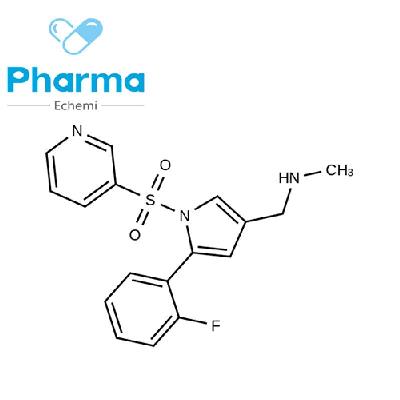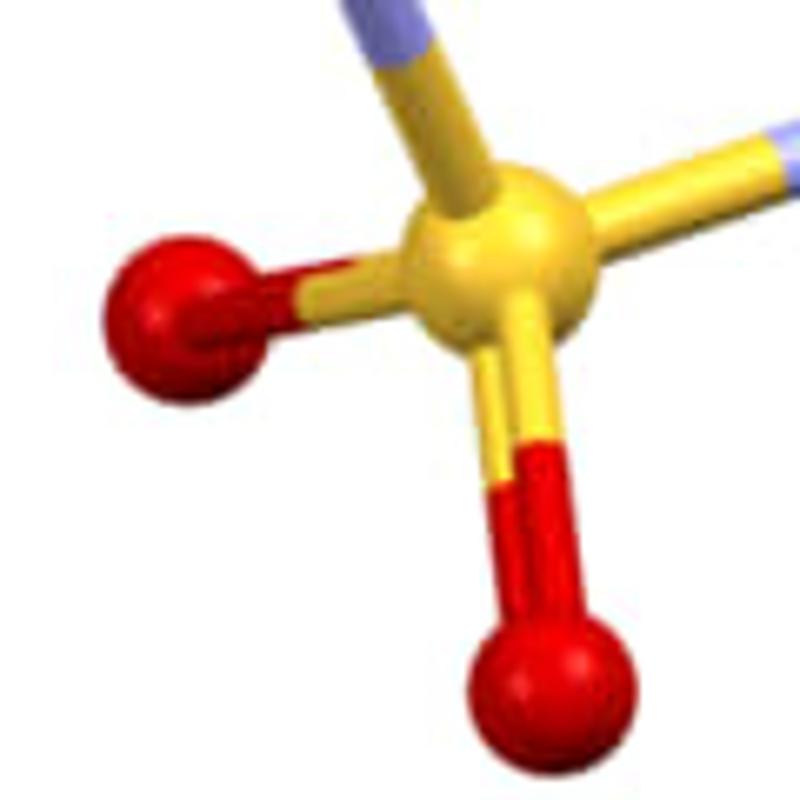-
Categories
-
Pharmaceutical Intermediates
-
Active Pharmaceutical Ingredients
-
Food Additives
- Industrial Coatings
- Agrochemicals
- Dyes and Pigments
- Surfactant
- Flavors and Fragrances
- Chemical Reagents
- Catalyst and Auxiliary
- Natural Products
- Inorganic Chemistry
-
Organic Chemistry
-
Biochemical Engineering
- Analytical Chemistry
-
Cosmetic Ingredient
- Water Treatment Chemical
-
Pharmaceutical Intermediates
Promotion
ECHEMI Mall
Wholesale
Weekly Price
Exhibition
News
-
Trade Service
At present, HER2-negative patients with advanced gastric cancer or gastroesophageal junction cancer (GC/GEJC) generally have a poor prognosis, and finding new targets and new targeted therapy drugs is an important breakthrough to improve the survival of
such patients.
Bemarituzumab is a recombinant, sugar-free, humanized IgG1 monoclonal antibody targeting fibroblast growth factor receptor subtype IIb (FGFR2b) in combination with 5-FU+LV+ oxaliplatin (mFOLFOX6) for the treatment of FGFR2b overexpressing tumors
.
Recently, Lancet Oncology (IF:54.
433) published a phase II randomized trial FIGHT study involving Professor Qin Shukui of Jinling Hospital of Nanjing University of Chinese Medicine, which evaluated the application of bemarituzumab in patients with FGFR2b overexpressed GC/GEJC
.
Research background
GC is the fifth most common cancer worldwide and the fourth leading cause of cancer death
.
The treatment of GC/GEJC has made great progress, but for HER2-negative GC/GEJC, up to 80%~85% of patients have a median overall survival (OS) of only 12~14 months
.
In the exploration of new targets, the FGFR2 target is one of many promising options at present, and some studies have shown that the overexpression of the FGFR2 gene and FGFR2b is associated
with poor prognosis in GC/GEJC patients.
A phase I single-agent study showed that bemarituzumab achieved an objective response
of 18% in 28 patients with chemotherapy-refractory GC with FGFR2 gene amplification and FGFR2b overexpression.
Based on this, the investigators designed the FIGHT trial to evaluate the efficacy and safety
of bemarituzumab combined with mFOLFOX6 as first-line treatment for patients with advanced GC/GEJC with FGFR2b overexpression.
Research methods
This study is a phase II.
, randomized, double-blind, placebo-controlled trial of adult patients with unresectable or metastatic GC/GEJC with FGFR2 gene amplification or FGFR2b overexpression, with an ECOG score of 0 or 1, a life expectancy of at least 3 months, and no prior chemotherapy
for metastatic or unresectable disease.
All patients were randomized (1:1) to the bemarituzumab group (bemarituzumab 15 mg/kg, q2w, with an additional dose of 7.
5 mg/kg on day 8 of cycle 1; Treatment with oxaliplatin 85 mg/m² + LV 400 mg/m² + 5-FU 400 mg/m² intravenous infusion followed by 2400 mg/m² infusion for 46 hours) or placebo (placebo plus mFOLFOX6 regimen
).
The primary endpoint of the study was progression-free survival (PFS), and secondary endpoints were OS, objective response rate (ORR), and safety
.
Research results
As shown in Figure 1, from November 14, 2017 to May 8, 2020, a total of 155 patients (77 in the bemarituzumab group and 78 in the placebo group) were included, including 44 women and 111 men, with a median age of 60.
0 years
.
149 patients (96%) had FGFR2b overexpression, 26 (17%) had FGFR2 amplification, and 20 (13%) had both FGFR2b overexpression and FGFR2 amplification
.
Fig.
1 Enrollment of patients
PFS analysis
As shown in Figure 2A, the median PFS in the bemarituzumab group was 9.
5 months (95% CI 7.
3-12.
9) and the placebo group was 7.
4 months, with no significant difference (HR=0.
68, 95% CI 0.
44-1.
04, P=0.
073).
。 The preset subgroup analysis showed that for patients with at least 5% of tumor cells with FGFR2b overexpression (n=118), the median PFS in the bemarituzumab and placebo groups was 10.
2 months and 7.
3 months, respectively; for patients with at least 10% of tumor cells having FGFR2b overexpression (n=118), The median PFS for patients in the bemarituzumab and placebo groups was 14.
1 months and 7.
3 months, respectively, as shown
in Figure 2B.
Fig.
2 PFS analysis of patients
Secondary endpoint analysis
As shown in Figure 3A, the median OS in the bemarituzumab group was not reached, and the median OS in the placebo group was 12.
9 months, with a statistically significant difference (HR=0.
58, 95% CI 0.
35-0.
95, P=0.
027).
Preset subgroup analysis showed that this difference was more pronounced in the FGFR2b overexpression subgroup with increasing proportion of overexpressed cells, as shown
in Figure 3B.
After longer follow-up, the median OS was 19.
2 months in the bemarituzumab group and 13.
5 months in the placebo group (HR = 0.
60, 95% CI 0.
38-0.
94).
Fig.
3 OS analysis of patients
The ORR was 47% (95% CI 35%-59%) in the Bemarituzumab group and 33% (95% CI 23%-45%)
in the placebo group.
The median duration of response (DOR) was 12.
2 months (95% CI 5.
5-15.
6) in the Bemarituzumab group and 7.
1 months (95% CI 4.
3-11.
7)
in the placebo group.
Common grade ≥ 3 adverse events in the bemarituzumab and placebo groups showed that common grade 3 adverse events included decreased neutrophil counts (30% vs.
35%), corneal adverse events (24% vs.
0), neutropenia (13% vs.
9%), stomatitis (9% vs.
1.
1%), and anemia (8% vs.
13%), with serious treatment adverse events occurring in 32% and 36% of patients in the bemarituzumab and placebo groups, respectively
。 For any grade of corneal adverse events that investigators focused on, the incidence was 67% in the bemarituzumab group and 10%
in the placebo group, respectively.
Three treatment-related deaths occurred in the bemarituzumab group and none in the placebo group
.
Conclusion of the study
This trial is the world's first randomized controlled trial to explore the efficacy and safety of FGFR inhibitors in the field of oncology, and although the study did not meet the primary PFS endpoint, OS analysis, ORR analysis, and preset subgroup analysis suggest that bemarituzumab combined with mFOLFOX6 may improve the prognosis of HER2-negative FGFR2 overexpressing GC/GEJC STUDIES SUCH AS FORTITUDE-101 AND FORTITUDE-102 ARE CURRENTLY EVALUATING THE FURTHER USE OF THE DRUG, AND IT IS EXPECTED THAT THEIR RESULTS CAN BRING MORE TREATMENT OPTIONS
TO GC/GEJC PATIENTS.
References:
Zev A Wainberg, Peter C Enzinger, Yoon-Koo Kang, et al.
Bemaritumab in patients with FGFR2b-selected gastric or gastro-oeaophageal junction adenocarcinoma(FIGHT):a randomised,double-blind,placebo-controlled,phase 2 study.
The Lancet Oncology October 13,2022.
https://doi.
org/10.
1016/S1470-2045(22)00603-9
Review: Your
Typesetting: Youshi
Execution: Uni
This platform aims to deliver more medical information
to healthcare professionals.
The content published on this platform cannot replace professional medical guidance in any way, nor should it be regarded as diagnosis and treatment advice
.
If such information is used for purposes other than understanding medical information, this platform does not assume relevant responsibilities
.
The content published by this platform does not mean that it agrees with its description and views
.
If copyright issues are involved, please contact us and we will deal with it
as soon as possible.







